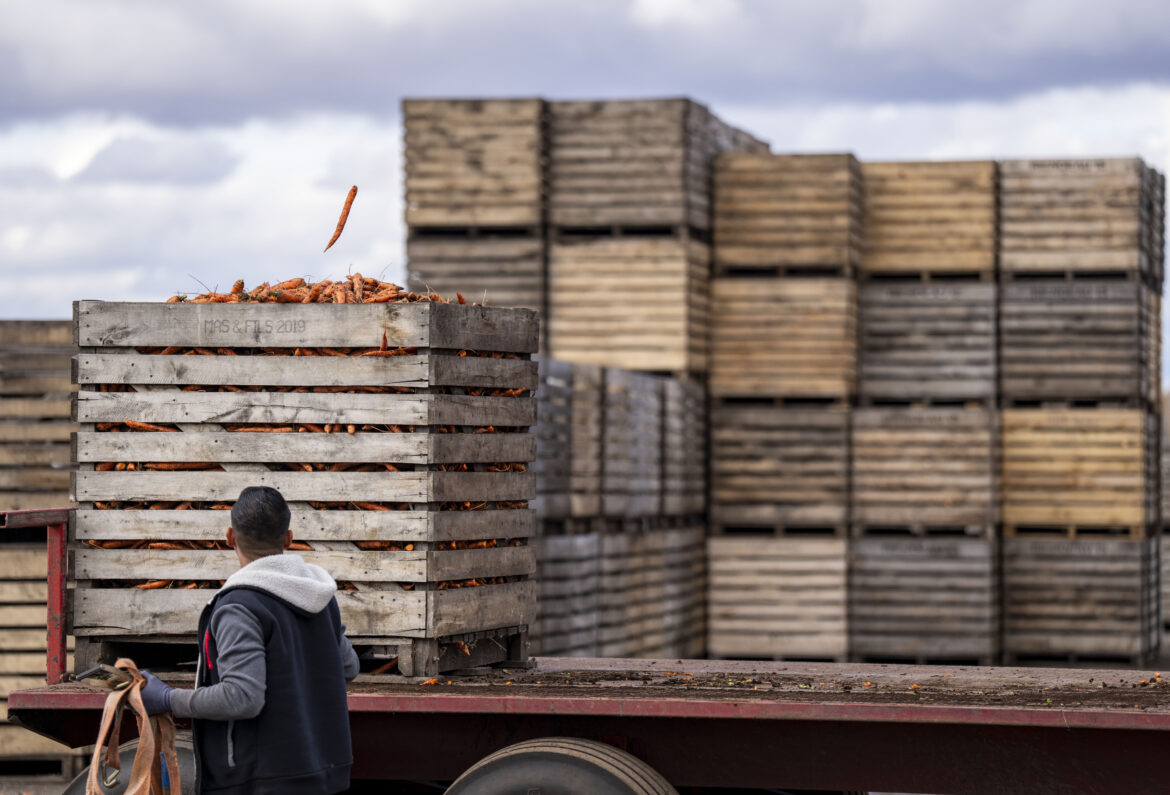By Emily Baron Cadloff
Canadian farmers plan to lobby the federal government to implement a guaranteed annual income and a cap on the profits of the major grocery store chains in the country.
The lobbying plans were adopted as a part of nine resolutions approved by members of the National Farmers Union who met at an annual conference in Moncton, N.B., last week.
A number of the farmers spoke at the conference about how it is becoming more difficult for them to conduct business in Canada every year.
David Thompson, executive director of the union, says over the last two decades, profits for small and mid-scale farmers have sunk, costs for equipment and inputs have risen, and the price of land is now unattainable for many farmers.
While it varies by region, Thompson says that with interest rates, “it can take upwards of 50 years just to pay off that land. In essence, farmers getting into the business are speculators at this point.”
Phil Mount, the union’s vice-president of policy, added that it can cost millions of dollars to set up a new farm.
“We’re talking $3 to $5 million to set up, if you don’t come from a farm family … that’s a huge investment that our parents and grandparents’ generation didn’t have to consider.”
That’s partly why Thompson says union members put forward a resolution on a government-sponsoredguaranteed annual income for farmers.
The resolution states that the union will advocate for a 10-year pilot program, testing out a guaranteed annual income of $50,000, a rate which would rise by inflation every year.
Thompson says the details of such a program would need to be negotiated with the federal government, but it’s likely the program could act as a top-up for farmers who did not meet the $50,000 threshold on their own.
There are insurance programs the federal government offers to farmers, but Thompson says they disproportionally benefit large-scale agribusinesses, “making $300(million)or $400 million in profit a year. The smaller and mid-scale farmers don’t have viable access to those insurance programs.”
“We’re saying that we need something that actually provides universal support for farmers who are on the margins and barely making ends meet.”
The federal Agriculture Department said it was not immediately able to provide a comment about the resolutions on Tuesday.
Two resolutions appear to take direct aim at the major grocery chains in Canada. One resolution calls for the union to lobby the federal government to introduce legislation that would put a cap on the profits of major grocery chains that control the lion’s share of the market.
Another resolution calls on union to create a national coalition pressing the federal government to purchase food directly from farmers to be sold at cost in a “network of national/provincial/municipal public grocery stores.” The union didn’t provide details about how this would work.
“There are three giant grocery chains, Loblaws, Sobeys, and Metro, that reported $100 billion in sales last year, and $3.6 billion in profits. So that kind of monopoly can be broken,” said Gavin Fridell, a professor at Saint Mary’s University in Halifax, from a panel on the first day of the conference.
Neither the Retail Council of Canada nor the Canadian Federation of Independent Grocers was immediately available to comment on the proposed resolutions on Tuesday.





